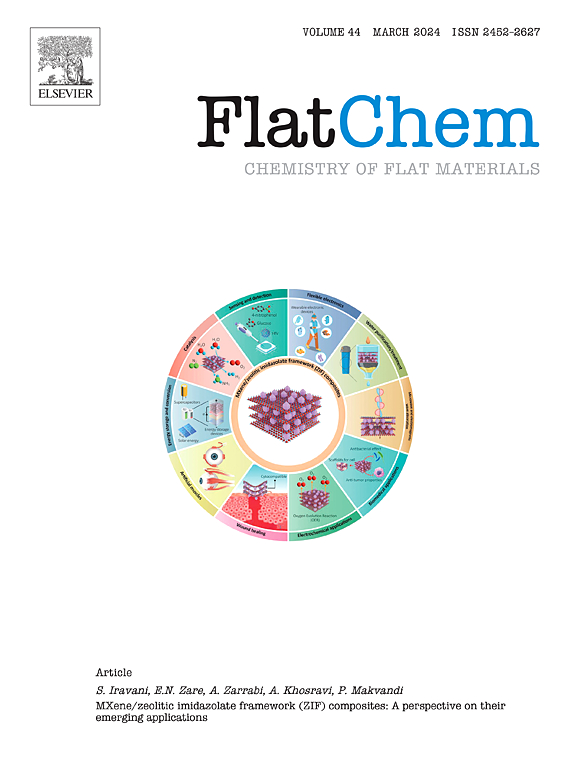温度相关二极管电流电压特性的人工智能驱动数据生成
IF 6.2
3区 材料科学
Q2 CHEMISTRY, PHYSICAL
引用次数: 0
摘要
人工智能有潜力开发出能够准确预测电子设备在各种操作条件下行为的模型。这样的模型允许研究人员在设计阶段进行精确的性能评估,减少开发时间和成本。例如,通过分析电流、电压和温度对二极管性能的影响,这些模型可以缩短二极管的开发周期,促进行业的可持续发展。在本研究中,制备了一种基于镧掺杂聚乙烯亚胺功能化石墨烯量子点的纳米复合二极管,研究温度对二极管性能的影响。实验测量了该二极管在77 ~ 400k温度范围内的电流-电压特性。这些测量结果被用来训练机器学习算法。具体来说,使用k近邻、决策树和梯度增强来预测缺乏实验数据的温度下的电流-电压特性。使用决定系数、均方误差和平均绝对误差等指标来评估这些模型的性能。其中Gradient Boosting模型精度最高,决定系数为0.9998,均方误差为0.0026,平均绝对误差为0.0222,但精度随温度的变化而变化。为了验证预测值的准确性,对相应的温度进行了重复的实验测量,以确认模型的性能。研究结果表明,人工智能辅助的温度相关数据生成可以通过降低能耗来促进可持续二极管产业的发展。本文章由计算机程序翻译,如有差异,请以英文原文为准。

Artificial intelligence-driven data generation for temperature-dependent current–voltage characteristics of diodes
Artificial intelligence has the potential to develop models that accurately predict the behavior of electronic devices under various operating conditions. Such models allow researchers to conduct precise performance evaluations during the design phase, reducing development time and costs. For instance, by analyzing the effects of current, voltage, and temperature on diode performance, these models can shorten the diode development cycle and promote sustainable industry growth. In this study, a nanocomposite diode based on lanthanum-doped polyethyleneimine-functionalized graphene quantum dots was fabricated to investigate the impact of temperature on diode performance. The diode's current–voltage characteristics were measured experimentally over a temperature range of 77–400 K. These measurements were used to train machine learning algorithms. Specifically, K-Nearest Neighbors, Decision Trees, and Gradient Boosting were employed to predict current–voltage characteristics at temperatures lacking experimental data. The performance of these models was evaluated using metrics such as the coefficient of determination, mean squared error, and mean absolute error. Among the models, Gradient Boosting demonstrated the highest accuracy, achieving a coefficient of determination of 0.9998, a mean squared error of 0.0026, and a mean absolute error of 0.0222, though accuracy varied with temperature. To test the accuracy of the predicted values, experimental measurements were repeated for the corresponding temperatures, confirming the model's performance. The findings indicate that artificial intelligence-assisted, temperature-dependent data generation can enhance the development of a sustainable diode industry by reducing energy consumption.
求助全文
通过发布文献求助,成功后即可免费获取论文全文。
去求助
来源期刊

FlatChem
Multiple-
CiteScore
8.40
自引率
6.50%
发文量
104
审稿时长
26 days
期刊介绍:
FlatChem - Chemistry of Flat Materials, a new voice in the community, publishes original and significant, cutting-edge research related to the chemistry of graphene and related 2D & layered materials. The overall aim of the journal is to combine the chemistry and applications of these materials, where the submission of communications, full papers, and concepts should contain chemistry in a materials context, which can be both experimental and/or theoretical. In addition to original research articles, FlatChem also offers reviews, minireviews, highlights and perspectives on the future of this research area with the scientific leaders in fields related to Flat Materials. Topics of interest include, but are not limited to, the following: -Design, synthesis, applications and investigation of graphene, graphene related materials and other 2D & layered materials (for example Silicene, Germanene, Phosphorene, MXenes, Boron nitride, Transition metal dichalcogenides) -Characterization of these materials using all forms of spectroscopy and microscopy techniques -Chemical modification or functionalization and dispersion of these materials, as well as interactions with other materials -Exploring the surface chemistry of these materials for applications in: Sensors or detectors in electrochemical/Lab on a Chip devices, Composite materials, Membranes, Environment technology, Catalysis for energy storage and conversion (for example fuel cells, supercapacitors, batteries, hydrogen storage), Biomedical technology (drug delivery, biosensing, bioimaging)
 求助内容:
求助内容: 应助结果提醒方式:
应助结果提醒方式:


